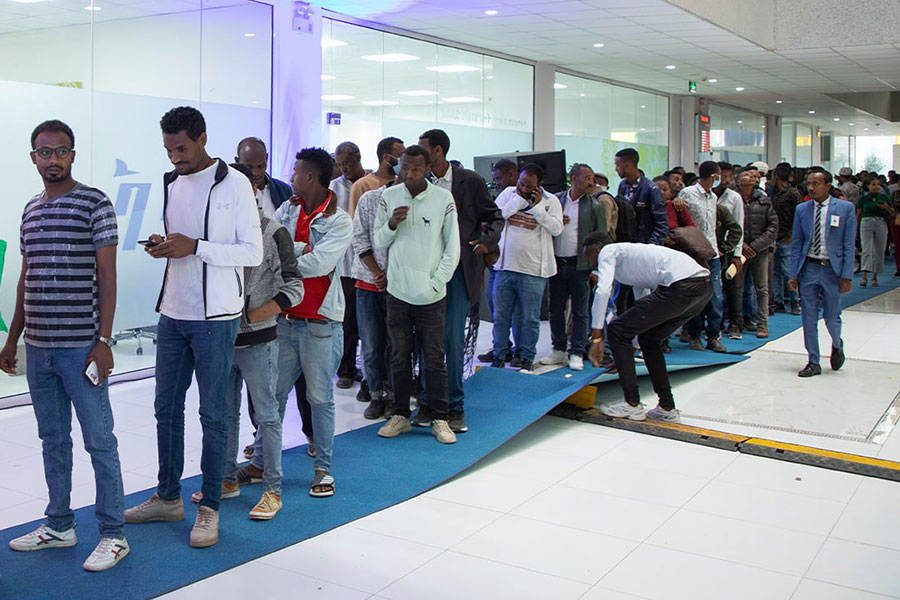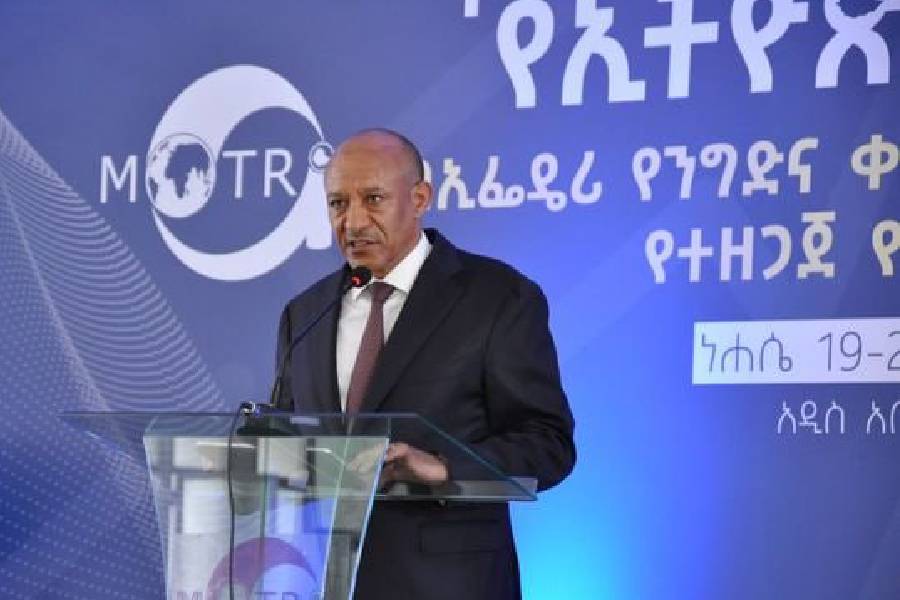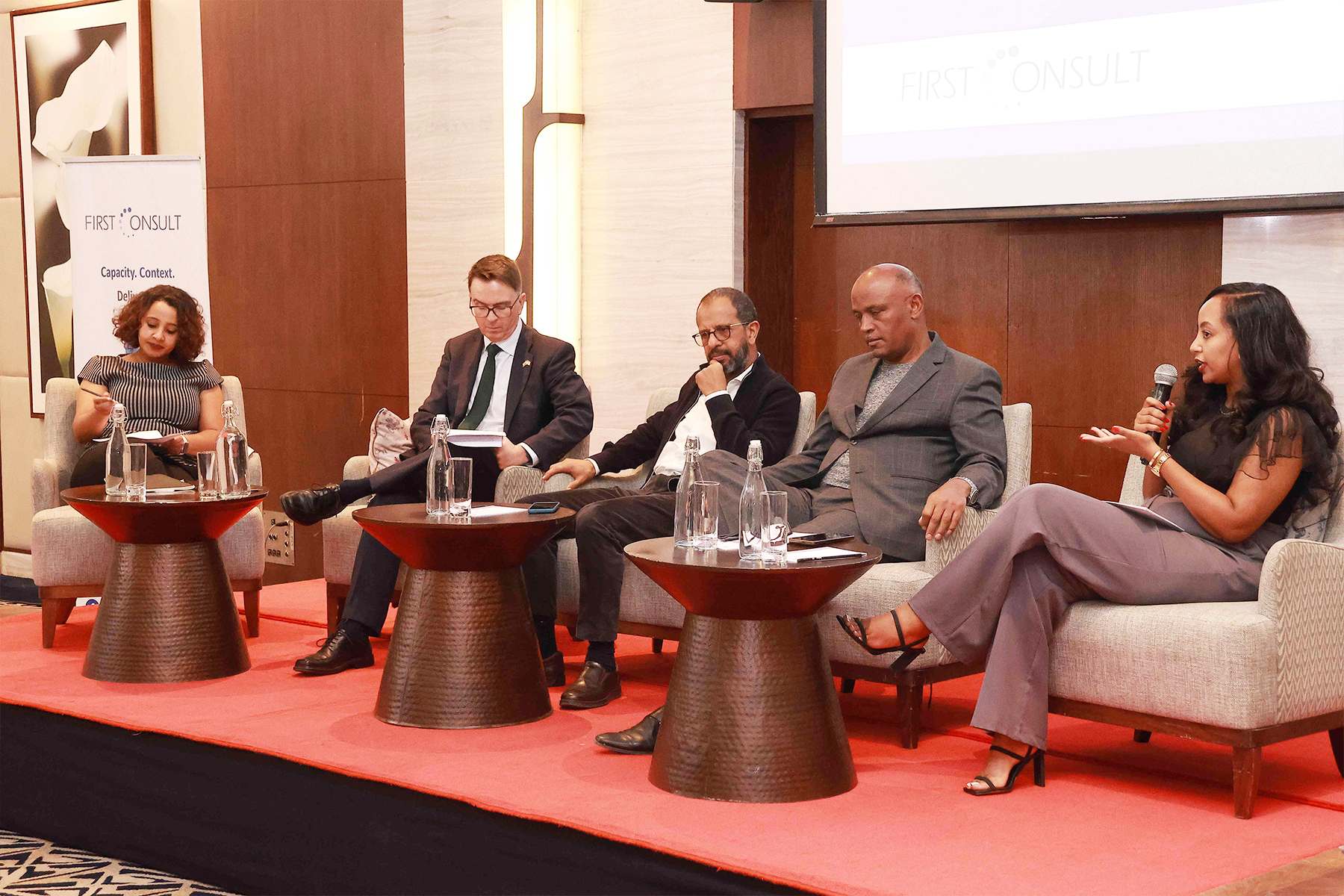
Viewpoints | Nov 29,2020
May 6 , 2023
By Bjorn Lomborg
If politicians were earnest about ending global inequality, many economists would say there is one apparent policy: allow greater global migration.
A nurse is paid about 1,900 dollars annually in poor countries compared to an average of 32,000 dollars in rich countries. A McDonalds’ worker in India earns 16 times less than their counterpart doing the same job in the United States (US). Economic theory holds that most of the world’s poor could become much more productive and prosperous if allowed to move to the developed world.
Studies routinely suggest that opening the world to migration could increase global GDP by a massive 50pc to 150pc. Of course, it would also involve more than two billion workers moving to the rich world. No mainstream politician in the rich world is about to call for unrestricted mobility. However, another migration policy is likely to be more politically achievable while reducing inequality and helping both the rich and poor: an increase in skilled migration.
For many years, the Copenhagen Consensus, a think-tank, has worked with several Nobel laureates and leading economists to look at how governments allocate money to do good for the world and establish where each Birr is most effectively spent.
This work has been driven by the world governments’ failure to reach their promises. In the United Nation’s (UN) global goals, all the world’s countries have made extravagant promises for 2030 across nearly every agenda. We are at halftime for these promises this year but far from halfway on delivery. On our current trajectory, even with very optimistic assumptions, we are likely to achieve the goals at least half a century late.
The world needs to start prioritizing. As we cannot deliver on everything we promised, maybe we should start with the most effective policies first.
New research for Copenhagen Consensus identifies 12 effective policies that could deliver huge benefits at moderate costs. Smart migration is one such policy, especially for its impact on reducing inequality.
Enabling more skilled migration to countries needing more skilled labour could achieve higher productivity and less inequality. And surveys tend to suggest it is more politically viable, as skilled migration is less divisive than overall migration. Our new study on migration looks at the impacts of allowing more skilled migration, particularly of doctors and STEM workers.
In total, the world today has about 37 million skilled migrants. STEM workers comprise about nine million of these, and medical doctors about one million. Compare this to the world’s 13 million doctors, with 12,400 in Ethiopia.
What would happen if each country took in 10pc more skilled migrants from the same mix of countries they already have?
Migrants themselves would benefit. For example, a doctor moving from the Caribbean or Central America to the US would see a dramatic and sustained wage increase worth almost 1.6 million dollars. But countries receiving skilled migrants, including the US, would also benefit: specialized doctors fill available positions so that less specialized doctors or nurses can return to doing what they do best. There is likely to be slightly higher economic growth because introducing more diverse ways of thinking, doing things, and approaching problems can generate more innovation. This drives growth.
Recipient countries can also gain skilled workers without incurring the costs of a lengthy and costly education.
Less obviously, the countries where migrants originate could see more benefits than costs. We often focus on the ‘brain drain’ that forces a country to pay to educate new doctors while lowering the productivity of the remaining doctors.
But the new research shows these costs will be outweighed by the skilled migrants who would establish new and additional channels for trade, investment, and production that can boost their home countries. They send home substantial and regular remittances, enabling their extended family to pay for good things like more education and productivity. These benefits will likely outweigh the costs about two to one.
Globally, the overall benefits to everyone can be much higher than the costs. While the total costs add up over the next 25 years to about 55 billion dollars, the benefits will add up to almost a trillion dollars. Each dollar spent on the policy can deliver a substantial 18 dollars in social benefit globally, mostly flowing to the world’s poorer nations.
The research also shows that increasing skilled migration globally offers a real opportunity to address inequality and increase global productivity. If the world is far behind on almost all its promises, maybe we should focus on the most effective policies first. Allowing more skilled migration where needed could be just one such policy.
PUBLISHED ON
May 06,2023 [ VOL
24 , NO
1201]


Viewpoints | Nov 29,2020

Commentaries | Feb 22,2020

My Opinion | Nov 16,2019

Commentaries | Dec 10,2022

Agenda | Jul 17,2022

Fortune News | Jul 09,2022

Fortune News | Sep 09,2024

Viewpoints | Apr 06,2024

Fortune News | Apr 06,2024

Commentaries | Jul 27,2024

My Opinion | 132041 Views | Aug 14,2021

My Opinion | 128437 Views | Aug 21,2021

My Opinion | 126364 Views | Sep 10,2021

My Opinion | 123987 Views | Aug 07,2021





Dec 22 , 2024 . By TIZITA SHEWAFERAW
Charged with transforming colossal state-owned enterprises into modern and competitiv...

Aug 18 , 2024 . By AKSAH ITALO
Although predictable Yonas Zerihun's job in the ride-hailing service is not immune to...

Jul 28 , 2024 . By TIZITA SHEWAFERAW
Unhabitual, perhaps too many, Samuel Gebreyohannes, 38, used to occasionally enjoy a couple of beers at breakfast. However, he recently swit...

Jul 13 , 2024 . By AKSAH ITALO
Investors who rely on tractors, trucks, and field vehicles for commuting, transporting commodities, and f...

Jul 12 , 2025
Political leaders and their policy advisors often promise great leaps forward, yet th...

Jul 5 , 2025
Six years ago, Ethiopia was the darling of international liberal commentators. A year...

Jun 28 , 2025
Meseret Damtie, the assertive auditor general, has never been shy about naming names...

Jun 21 , 2025
A well-worn adage says, “Budget is not destiny, but it is direction.” Examining t...

Jul 13 , 2025 . By YITBAREK GETACHEW
The Addis Abeba City Revenue Bureau has introduced a new directive set to reshape how...

Jul 13 , 2025 . By BEZAWIT HULUAGER
Addis Abeba has approved a record 350 billion Br budget for the 2025/26 fiscal year,...

Jul 13 , 2025 . By RUTH BERHANU
The Addis Abeba Revenue Bureau has scrapped a value-added tax (VAT) on unprocessed ve...

Jul 13 , 2025 . By NAHOM AYELE
Federal lawmakers have finally brought closure to a protracted and contentious tax de...